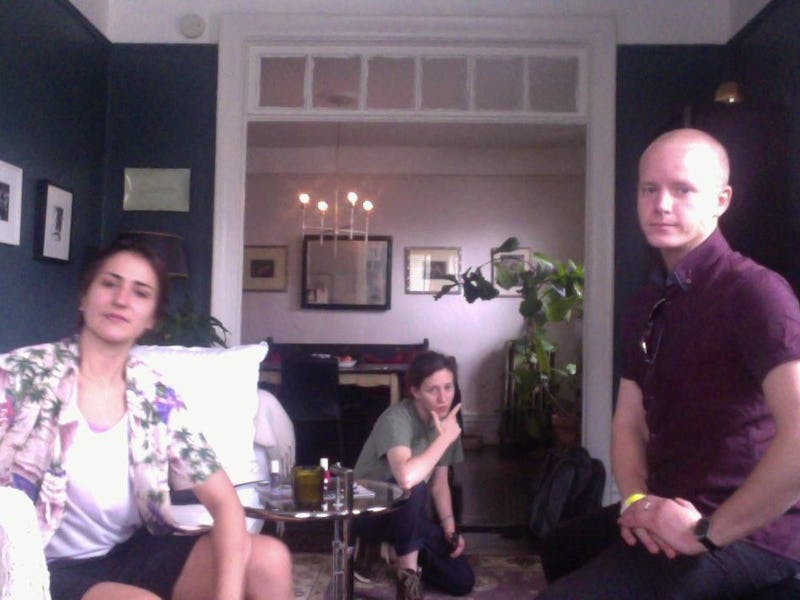Micachu and the Shapes' 'Good Sad Happy Bad': Typically Puzzling, Strangely Alluring
The London group is as obtuse and fiercely individualistic as ever on their new album.

Mica Levi, composer and frontwoman of Micachu and the Shapes, writes music that seems designed to always be a few steps ahead of the listener: One is forced to give her the benefit of the doubt, and persevere through some alienating moments. Even as you come to love the music, you feel like there is always more to discover in it. All you can do is keep listening and strive to glean all you can — to try out different systems for ordering all the chaotic sounds coming at you.
The band’s newest album, Good Sad Happy Bad is not much closer in style to the glitchy, grime-inflected accessibility of their debut (2009’s excellent Jewellery); instead, it picks up where 2012’s most abrasive and challenging Never left off. The band works in the lineage of the addled, incubated avant-pop of ‘00s-famous groups like Ariel Pink’s Haunted Graffiti, Cocorosie and Xiu Xiu. The bluesy dirge “Oh Baby” is the closest to standalone “hit” material: Its meandering melody is clearly articulated over its shuffling, bar-band backbeat. The laconic, Lou Reed-reminiscent “Suffering” has a similarly appealing directness of purpose.
Arrangement-wise, the band’s concise post-punky songs combine unidentifiable guitar and synth textures with dry, unquantized grooves. Levi’s detuned alto harmonies float on top — stark, blown-out, and manipulated into unintelligibility. The style of each song is drastically different, from bossa nova instrumentals, to punk barnburners, to mournful, shambolic ballads. But all the playful baiting and diversity is what makes Micachu’s albums worthy of your extra time. They are one of the most exciting indie-rock acts working, one of a relative few that has managed to lay claim to and preserve their own distinctive, nostalgia-less aesthetic.
Good Sad Happy Bad is out now on Rough Trade Records.